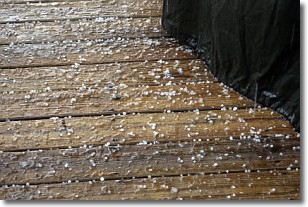Weather Alerts for California
1. Flood Warning for: Butte, CA; Glenn, CA
2. Flood Warning for: Butte, CA; Glenn, CA
3. Flood Warning for: Lassen, CA
4. Flood Warning for: Lassen, CA
5. Flood Warning for: Modoc, CA
6. Flood Warning for: Sonoma, CA
7. Flood Warning for: Sonoma, CA
8. Flood Warning for: Tehama, CA
9. Flood Warning for: Tehama, CA
10. Flood Warning for: Tehama, CA
11. Flood Watch for: Marin Coastal Range; Sonoma Coastal Range; North Bay Interior Mountains; Coastal North Bay Including Point Reyes National Seashore; North Bay Interior Valleys
12. Frost Advisory for: North Bay Interior Valleys; East Bay Interior Valleys; Southern Salinas Valley/Arroyo Seco and Lake San Antonio
13. Winter Storm Warning for: Burney Basin / Eastern Shasta County; Western Plumas County/Lassen Park; West Slope Northern Sierra Nevada
14. Winter Storm Warning for: Del Norte Interior
15. Winter Storm Warning for: Eastern Sierra Slopes of Inyo County
16. Winter Storm Warning for: Greater Lake Tahoe Area; Greater Lake Tahoe Area
17. Winter Storm Warning for: Lassen-Eastern Plumas-Eastern Sierra Counties
18. Winter Storm Warning for: Mono
19. Winter Storm Warning for: Shasta Lake Area / Northern Shasta County; Mountains Southwestern Shasta County to Western Colusa County
20. Winter Storm Warning for: Western Siskiyou County
21. Winter Storm Warning for: Yosemite NP outside of the valley; Upper San Joaquin River; Kaiser to Rodgers Ridge; Kings Canyon NP; Sequoia NP
22. Winter Weather Advisory for: Coastal Del Norte
23. Winter Weather Advisory for: Northern Humboldt Interior; Southern Humboldt Interior
24. Winter Weather Advisory for: Northern Trinity; Southern Trinity
25. Winter Weather Advisory for: South Central Siskiyou County
26. Winter Weather Advisory for: Surprise Valley California; Northern Washoe County
Want more detail? Get the Complete 7 Day and Night Detailed Forecast!
Current U.S. National Radar--Current
The Current National Weather Radar is shown below with a UTC Time (subtract 5 hours from UTC to get Eastern Time).

National Weather Forecast--Current
The Current National Weather Forecast and National Weather Map are shown below.

National Weather Forecast for Tomorrow
Tomorrow National Weather Forecast and Tomorrow National Weather Map are show below.

North America Water Vapor (Moisture)
This map shows recent moisture content over North America. Bright and colored areas show high moisture (ie, clouds); brown indicates very little moisture present; black indicates no moisture.

Weather Topic: What is Rain?
Home - Education - Precipitation - Rain
 Next Topic: Shelf Clouds
Next Topic: Shelf Clouds
Precipitation in the form of water droplets is called rain.
Rain generally has a tendency to fall with less intensity over a greater period
of time, and when rainfall is more severe it is usually less sustained.
Rain is the most common form of precipitation and happens with greater frequency
depending on the season and regional influences. Cities have been shown to have
an observable effect on rainfall, due to an effect called the urban heat island.
Compared to upwind, monthly rainfall between twenty and forty miles downwind of
cities is 30% greater.
Next Topic: Shelf Clouds
Weather Topic: What is Sleet?
Home - Education - Precipitation - Sleet
 Next Topic: Snow
Next Topic: Snow
Sleet is a form of precipitation in which small ice pellets are the primary
components. These ice pellets are smaller and more translucent than hailstones,
and harder than graupel. Sleet is caused by specific atmospheric conditions and
therefore typically doesn't last for extended periods of time.
The condition which leads to sleet formation requires a warmer body of air to be
wedged in between two sub-freezing bodies of air. When snow falls through a warmer
layer of air it melts, and as it falls through the next sub-freezing body of air
it freezes again, forming ice pellets known as sleet. In some cases, water
droplets don't have time to freeze before reaching the surface and the result is
freezing rain.
Next Topic: Snow




